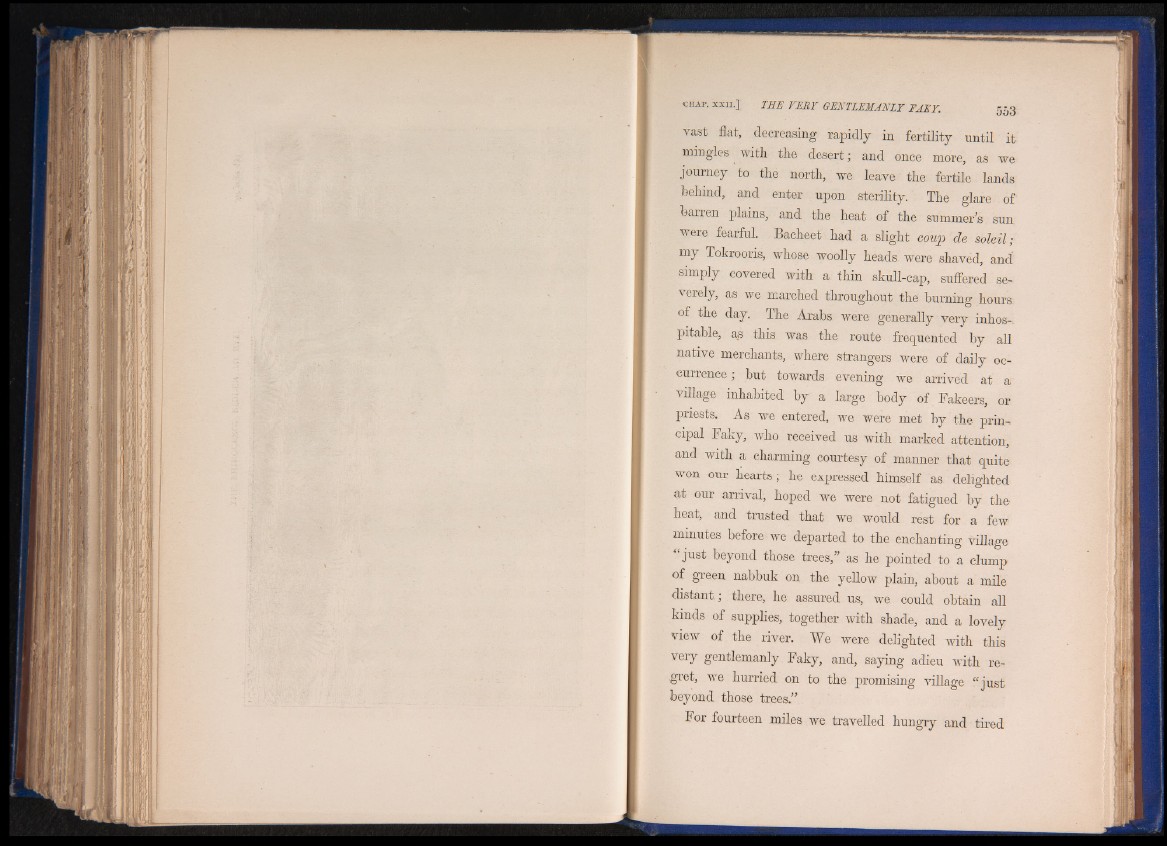
vast flat, decreasing rapidly in fertility until it
mingles with the desert; and once more, as we
journey to the north, we leave the fertile lands
behind, and enter upon sterility. The glare of
barren plains, and the heat of the summer’s sun
were fearful. Bacheet had a slight coup de soldi;
my Tobrooris, whose woolly heads were shaved, and
simply covered with a thin skull-cap, suffered severely,
as we marched throughout the burning hours
of the day. The Arabs were generally very inhospitable,
as this was the route frequented by all
native merchants, where strangers were of daily occurrence
; but towards evening we arrived at a
village inhabited by a large body of Fakeers, or
priests. As we entered, we were met by the principal
Faky, who received us with marked attention,
and with a charming courtesy of manner that quite
won our hearts; he expressed himself as delighted
at our arrival, hoped we were not fatigued by the*
heat, and trusted that we would rest for a few
minutes before we departed to the enchanting village
just beyond those trees,” as he pointed to a clump
of green nabbuk on the yellow plain, about a mile
distant; there, he assured us, we could obtain all
kinds of supplies, together with shade, and a lovely
view of the river. We were delighted with this
very gentlemanly Faky, and, saying adieu with regret,
we hurried on to the promising village “just
beyond those trees.”
For fourteen miles we travelled hungry and tired